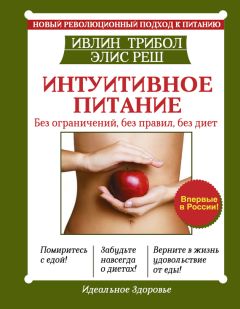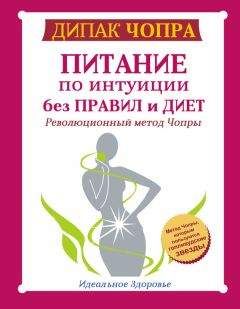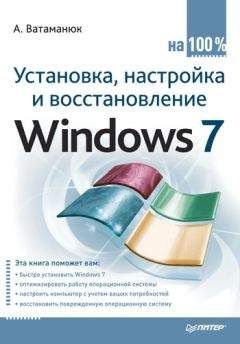Berridge K. C. & Kringelbach M. L. Affective Neuroscience of Pleasure: Reward in Humans and Animals. Psychopharmacology (Berl). 2008 (August) 199: 457–480.
Epstein L. H. Habituation as a Determinant of Human Food Intake. Psychol Rev. 2009 April; 116: 384–407.
Epstein L. H. Long-term Habituation to Food in Obese and Nonobese Women. Am J Clin Nutrition. 2011; doi: 10.3945/ajcn.110.009035.
Erikson, Erik H. The Life Cycle Completed. A Review. W.W. Norton and Company: NY, NY., 1982.
Ernst M. M. Habituation of Responding for Food in Humans. Appetite (2002) 38, 224–234 doi:10.1006/appe.2001.0484.
Gearhardt An et al. Preliminary Validation of the Yale Food Addiction Scale. Appetite 2009 (52): 430–436.
Gilbert D. Stumbling on Happiness. Knopf. NY: NY, 2006, 130.
Herman, C. P. and Polivy, J. Restrained Eating. In Stunkard. A. Obesity. Philadelphia, PA.: WB Saunders, (1980), pp. 208–225.
Kristeller J. L., & Wolever RQ (2011). Mindfulness-based Eating Awareness Training for Treating Binge Eating Disorder: The Conceptual Foundation. Eating Disorders, 19, 49–61 PMID: 21181579
Loro, A. D. and Orleans, C. S. (1981). Binge Eating in Obesity: Preliminary Findings and Guidelines for Behavioral Analysis and Treatment. Addictive Behaviours. 7, 155–166.
Miller, P. H. Theories of Developmental Psychology. (1993). W.H. Freeman and Company: NY, NY.
Mydans, S. 8 Bid Farewell to the Future: Musty Air, Roaches and Ants. The New York Times. Sept 27, 1993: p. A1.
Ogden, J. and Wardle, J. Cognitive and Emotional Responses to Food. International Journal of Eating Disorders. 10 (1991): 297–311.
Personal Communication. Ennette Larson, M.S., R.D. Research dietitian for NIH, Phoneix, AZ.
Salimpoor V. N. Anatomically Distinct Dopamine Release During Anticipation and Experience of Peak Emotion to Music. Nature Neuroscience. Feb (2011) 14: 257–262.
Satter, E. How to Get Your Kid to Eat … But Not Too Much. (1987) Bull Publishing Company: Palo Alto, CA.
Seamon, J. G. and Kenrick, D. T. Psychology, Second Edition (1994). Prentice Hall: Englewood Cliffs, N.J.
Smitham, L. Evaluating an Intuitive Eating Program for Binge Eating Disorder: A Benchmarking Study. University of Notre Dame, November 26, 2008.
Snoek H. M. et al. Obese and Normal-weight Women. Am J Clin Nutr Vol. 80, No. 4, October 2004, 823–831.
Глава 8. Принцип четвертый: скажите «нет» стереотипам о «правильных» и «неправильных» продуктах
As the Chicken Turns. Tufts University Diet and Nutrition Letter. 11 (11) (1994): 1.
Berne, Eric. Games People Play. Grove Press, Inc. New York, 1964.
Ellis, A. and Harper, R. A., A New Guide to Rational Living. 1975. Melvin Powers, Wilshire Book Company, 12015 Sherman Road, North Hollywood, CA, 91605.
Food Guilt. Utne Reader. Nov/Dec (1993): 53.
Hiser, E. Butter paroled, margarine charged. Eating Well. Nov/Dec: 104, 1993.
King, G. A., Herman, C. P., and Polivy, J. Food Perception in Dieters and Non-dieters. Appetite, 8 (1987): 147–158.
Seid, R. P. Never Too Thin. NY, NY: Prentice Hall Press, 1989.
Глава 9. Принцип пятый: всегда обращайте внимание на чувство насыщения
Bray, G. A. The Nutrient Balance Approach to Obesity. Nutrition Today. (1993). 28: 13–18.
De Castro, J. M. Weekly Rythms of Spontaneous Nutrient Intake and Meal Patterns of Humans. Physiology & Behavior. 50 (1991): 729–738.
De Castro, J. M. Physiological, Environmental, and Subjective Determinants of Food Intake in Humans: A Meal Pattern Analysis. Physiology & Behavior. (1988), 44: 651–659.
Глава 10. Принцип шестой: ешьте с удовольствием
Anderson, S. L. (1990). A look at the Japanese Dietary Guidelines. Journal of the American Dietetic Association, 90(11), 1527–1528.
Oldham-Cooper R. E., et al. Playing a Computer Game During Lunch Affects Fullness, Memory for Lunch, and Later Snack Intake. Am J Clin Nutr 93: February (2011) 308–313.
Epstein L. H. Habituation as a determinant of human food intake. Psychol Rev. 2009 April; 116: 384–407.
Visser, M. On having cake and eating it. Journal of Gastronomy 7: 5–17, 1993.
Wisniewski, L., Epstein, L. H., and Caggiula, A. R. (1992). Effect of Food Change on Consumption, Hedonics, and Salivation. Physiology and Behavior, 92(52), 21–26.
Глава 11. Принцип седьмой: научитесь управлять эмоциями без помощи еды
Arnow, B., Kenardy, J., and Agras, W. S. (1992). Binge Eating Among the Obese: A Descriptive Study. Journal of Behavioral Medicine, 15, 155–170.
Barnett, R. Appetite and the Meal. The Journal of Gastronomy. 7 (1993): 59–72.
De Castro, J. M. (1990). Social Facilitation of Duration and Size but Not Rate of the Spontaneous Meal Intake of Humans. Physiology and Behavior, 47, 1129–1135.
De Castro, J. M. and Brewer, E. M. (1991). The Amount Eaten in Meals by Humans Is a Power Function of the Number of People Present. Physiology and Behavior, 51, 121–125.
De Castro, J. M. (1991). Weekly Rhythms of Spontaneous Nutrient Intake and Meal Pattern of Humans. Physiology and Behavior. 50, 729–738.
Goldman, S. J., Herman, C. P., and Polivy, J. (1991). Is the Effect of a Social Model on Eating Attenuated by Hunger? Appetite. 17, 129–140.
Heatherton, T. F., Herman, C. P. and Polivy, J. (1992). Effects of Distress on Eating: The Importance of Ego-involvement. Journal of Personality and Social Psychology. 62(5), 801–803.
Herman, C. P. and Polivy, J. Fat Is a Psychological Issue. New Scientist. Nov (1991): 41–45.
Herman, C. P. and Polivy, J. (1988). Psychological Factors in the Control of Appetite. Current Concepts in Nutrition, 16, 41–51.
Herman, C. P., Polivy, J., Lank, C. N., and Heatherton, T. F. (1987). Anxiety, Hunger, and Eating Behavior. Journal of Abnormal Psychology, 96, 264–269.
Hill, A. J., Weaver, C. F. L., and Blundell, J. E. (1991). Food Craving, Dietary Restraint and Mood. Appetite, 17, 187–197.
Morton, C. J. Weight Loss Maintenance and Relapse Prevention. In: Obesity and Weight Control by Reva T. Frankle and Mei-Uih Yang. 1988. Aspen Publishers, Inc., Rockville, Maryland.
Ogden, J. and Wardle, J. (1991). Cognitive and Emotional Responses to Food. International Journal of Eating Disorders, 10, 297–311.
Polivy, J., Herman, C. P., Hackett, R., and Kuleshnyk, I. (1986). The Effects of Self-attention and Public Attention on Eating in Restrained and Unrestrained Subjects. Journal of Personality and Social Psychology. 50(6), 1253–1260.
Weissenburger, J., Rush, A. J., Giles, D. E., and Stunkard, A. J. (1986). Weight Change in Depression. Psychiatry Research, 17, 275–283.
Глава 12. Принцип восьмой: относитесь к своему телу с любовью и уважением
2011 Succeed Foundation Body Image Survey [www.responsesource.com/releases/rel_display.php?relid=63713&hilite=BOdy%20image accessed June 6, 2011].
Bacon L. and Aphramor L. Weight Science: Evaluating the Evidence for a Paradigm Shift. [2011]. Nutrition Journal, January. 10:9. [Free full text]. bit.ly/f4CKOK.
Brownell, K. The Debate to Nowhere. Posted Augst 23, 2006. bit.ly/je8eFU [accessed June 12, 2011].
Diet Winners and Sinners of the Year. People Weekly. January 10, 1994.
Dietary Guideline Advisory Committee. Report of Puhl R. M. The Stigma of Obesity: A Review and Update. Obesity (2009) doi:10.1038/oby.2008.636.
Rudd Report. Weight Bias a Social Justice Issue Policy Brief. 2009. Yale University.
Stice E. et al. An Effectiveness Trial of a Dissonance-Based Eating Disorder Prevention Program for High-Risk Adolescents Girls J Consult Clin Psychol. October (2009); 77(5):825–834. Free Full Text. [bit.ly/bw6gLV].
The Dietary Guidelines Advisory Committe on the Dietary Guidelines for Americans 1990. USDA.
Rodin, J. Body Traps. NY, NY: William Morrow, 1992.
Wiseman, et al. Cultural Expectations of Thinness in Women: An Update. International Journal of Eating Disorders. 11 (1992): 85–89.
Глава 13. Принцип девятый: измените подход к физической активности
American College of Sports Medicine. Position Stand: The Recommended Quantity and Quality of Exercise for Developing and Maintaining.
Cardiorespiaratory and Muscular Fitness in Healthy Adults. Med Scie Sports Exer. 22 (1990): 265–274.
American College of Sports Medicine. Position Stand: The Recommended Quantity and Quality of Exercise for Developing and Maintaining.
Cardiorespiratory and Muscular Fitness, and Flexibility in Healthy Adults. Medicine & Science in Sports & Exercise. 30(6): 975–991, June 1998.
American College of Sports Medicine. Press Release: Experts Release New Recommendations to Fight America’s Epidemic of Physical Inactivity. July 29, 1993.
American College of Sports Medicine. Two Minutes of Exercise a Day Can Keep the Pain Away. June 3, 2011. [bit.ly/mdFUogaccessed June 10, 2011].
Calogero, R. and Pedrotty K. (2007). Daily practices for Mindful Exercise. In L. L’Abate, D. Embry, & M. Baggett (Eds.), Handbook of Lowcost Preventive Interventions for Physical and Mental Health: Theory, Research, and Practice, Springer-Verlag, 141–160.
Chaput, J. C. Physical Activity Plays an Important Role in Body Weight Regulation, Journal of Obesity, vol. 2011, Article ID 360257, 11 pages, 2011. doi:10.1155/2011/360257.
Costill, D. L. Carbohydrates for Exercise: Dietary Demands for Optimal Performance. International Journal of Sports Medicine, 9:5, 1988.
Evans, B. and Rosenberg, I. Biomarkers the 10 Determinants of Aging You Can Control. Simon and Schuster: NY, NY. 1991.
Foreyt, J, et al. Response of Free-living Adults to Behavioral Treament of Obesity: Attrition and Compliance to Exercise. Behavior Therapy 24 (1993): 659–669.
Gandey, A. Exercise Reduces Silent Brain Infarcts. Medscape News. June 10, 2011.
Gavin, J. The Exericse Habit. Champaign, IL: Human Kinetics, 1992.
Lemon, P. W. R and Mullin, J. P. Effect of Initial Muscle Glycogen Levels on Protein Catabolism During Exercise. Journal Applied Physiology: Respitr. Environ. Exercise Physiol.: 48(4) (1980): 624–629.
McGuire, K., & Ross, R. (2011). Incidental Physical Activity Is Positively Associated with Cardiorespiratory Fitness Medicine & Science in Sports & Exercise DOI: 10.1249/MSS.0b013e31821e4ff2
Miller, W. C. Exercise: Americans Don’t Think It’s Worth It. Obesity & Health. Mar/Apr: 29, 1994.
Pollock, M. L., et al. Effect of Age and Training on Aerobic Capacity and Body Composition of Master Athletes. J Appl Physiol 62 (1987): 725–731.
Tryon, W. W., Goldberg, J. L., and Morrison, D. F. Activity Decreases as Percentage Overweight Increases. International Journal of Obesity. 16 (1992): 591–595.
Глава 14. Принцип десятый: здоровый взгляд на понятие «здоровое питание»
2010 Dietary Guidelines www.cnpp.usda.gov/dietaryguidelines.htm [accessed May 30, 2011].
Calorie Control Commentary, 14: 1–2, 1992.
Basdevant, A. Prevalence of Binge Eating Disorder in Different Populations of French Women. Int J Eat Disorders. 1995; 18(4): 309–315.
Beardsley, E. In Paris, Culinary Education Starts In Day Care. NPR. February 16, 2009.
Callaway, W. The Marriage of Taste and Health: A Union Whose Time Has Come. Nutrition Today. 27:3 7–42, 1992.
Calder, P. The American Heart Association Advisory on n-6 Fatty Acids: Evidence Based or Biased Evidence? British Journal of Nutrition, 2010 /Volume 104(11): 1575–1576.
CDC. Helicobacter pylori. Fact Sheet for Health Care Providers, www.cdc.gov/ulcer/files/hpfacts.PDF [accessed May 29, 2011].
Egolf, B., Lasker, J., Wolf, S., and Potvin, L. The Roseto Effect: A 50-year Comparison of Mortality Rates. Am J Public Health (1992) 82: 1089–1092.
Evans, H. M. et al. A New Dietary Deficiency With Highly Purified Diets: The Beneficial Effect of Fat in the Diet. Proceedings of the Society for Experimental Biology and Medicine (1928); 25: 390–397.
Getz, L. Orthorexia: When Eating Healthy Becomes an Unhealthy Obsession. Today’s Dietitian. 2009 (June): page 40.
Glore, S. R. et al. Soluble Fiber and Serum Lipids: A Literature Review. Journal of the American Dietetic Association. 94 (1994): 425–436.
Guyenet, S. Butter, Margarine and Heart Disease. Whole Health Source. December 27, 2008. www.webmd.com/diet/news/20080813/the-olympic-diet-of-michael-phelps [accessed May 23, 2011].
Ledoux, S. Eating Disorders Among Adolescents in an Unselected French Population. International Journal of Eating Disorder. 10 (1991): 81–89.
McCargar, L. J. et al. Physiological Effects of Weight Cycling in Female Lightweight Rowers. Canadian Journal of Applied Physiology. 18 (1993): 291–303.
McEwen, B. Central Effects of Stress Hormones in Health and Disease: Understanding the Protective and Damaging Effects of Stress and Stress Mediators. Eur J Pharmacol. 2008 April 7; 583(2–3): 174–185.





